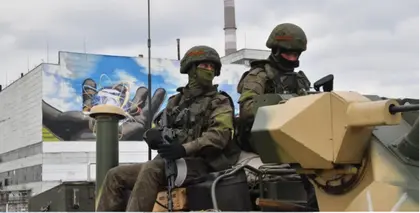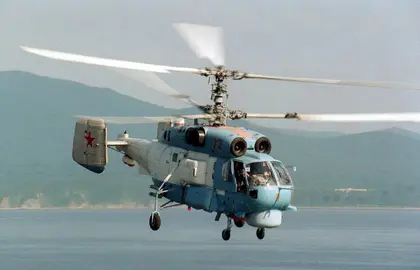The war in Ukraine has shown what soldiers have known for centuries – that morale is more important than any expensive weapons system or military doctrine.
Scenes of soldiers singing in the dungeons of Azovstal, Mariupol are a testament to the high morale of the Ukrainian army. Scenes of Ukrainian soldiers and civilians finally leaving the steelworks factory after the long siege will inspire resistance across the country.
All organizations require morale to meet their objectives. It is the emotional or mental condition of an individual and group to fulfil their mission, especially in the face of opposition and hardship. It’s often synonymous with motivation, confidence, courage, a sense of control in one’s fate, and cohesion which in war all add up to the will to fight.
Though vital, morale is a slippery ingredient that is hard to define and nearly impossible to measure. All good leaders seek to cultivate it. Not all succeed. Why, and how does one achieve it?
That war is a contest of wills is not a new concept. The side that forces the other’s surrender wins. But war, as we know, is fought by humans, not by weapons. As a RAND study on morale put it, “The best technology in the world is useless without the force of will to use it and to keep using it even as casualties mount and unexpected calamities arise.”
There is no one-size-fits-all strategy to generating morale. But groups that demonstrate high morale, from PTAs to sequestered juries, all share some commonalities. We discuss these in turn, below.
- Messaging
President Volodymyr Zelensky has regularly corresponded with his troops with messages that inspire confidence, loyalty, hope, and high morale. Messages of defiance like the iconic soldier of Snake Island replying to the Russian warship to “Go f**k yourself” inspire millions.
Here, Ukraine’s Starlink (its satellite internet) is critical, as even Azovstal has been able to receive messages in real time. When a group receives the same messaging at the same tempo, this creates cohesion (sociologists consider one reason for higher American social capital during the 1950s was because a few all-powerful broadcast media controlled all the messaging).In the case of Ukraine, these messages are as tactical as they are strategic – they keep soldiers informed, aware of the actions of their allies (recall soldiers dancing after hearing that the U.S. “lend lease” package was signed). The modern communications aspect of this war – the ability to keep individuals to entire communities motivated – are what scholars from a previous era called a “revolution in military affairs.”
- Music
It might sound trite but there is a healing and even unifying power in music – a melody, a theme to motivate the masses. “Yankee Doodle” began as a song sung to mock the newfound colonies’ ragtag army. It quickly emerged as a rallying cry, symbol of unity, and national anthem. Ditto, similar passions propelled Ukraine to win the 2022 Eurovision Song contest (a rap-folk ditty written by the Kalush Orchestra).
- Cohesion
Cliché as it may sound, an army has to fight as a group, not a collective of individuals – from the person to their left and right, to an entire group trapped underground keeping each other’s spirits high. Even pets are an essential part of the esprit de corps (e.g. dogs in Azovstal). Scenes of Ukrainian soldiers laughing being widely shared and tagged, not only help loved ones back home feel better – they are vital to unit cohesion and morale.
- Leadership
Good leaders know that morale is not a constant. It can quickly expire and threaten the entire group’s will to fight. Therefore, like any unknown variable of war, morale must be monitored. Like a gardener, a good leader must nurture it.
An effective leader can also turn untested conscripts into war heroes, almost overnight. When morale plummeted during the Revolutionary War, and Washington’s men were quartered at Valley Forge over the cold winter of 1778, something palpable changed after the German Baron von Steuben restored discipline and whipped them into shape. Morale soon turned around.
Russia has seen at least a dozen of its generals killed during the war. Its civilian leadership has made few public statements. There have been no Churchillean speeches emanating from the Kremlin. By contrast, Ukraine’s leadership has put out regular missives and is seen on a nightly basis. Zelensky’s rousing speeches have put a positive spin on the conflict, serving to rally the troops and inspire other countries to open their purse strings.
Napoleon told his brother Joseph that morale and personal character are three times as important as brute physical strength. Even though Ukraine has won the all-important battle for hearts and minds – blue and yellow murals festoon buildings across the globe – morale alone cannot win a war. Nor should it be taken as a given. There is still a lot of war ahead, and troops – and their benefactors abroad – need messages of hope. They might take heed of the song (incidentally, written before the war) that won Ukraine the Eurovision crown: “I‘ll always find my way home, even if all roads are destroyed.”
John Spencer is a retired U.S. Army major, chair of Urban Warfare Studies at the Madison Policy Forum, and author of both “The Mini-Manual for the Urban Defender” and “Connected Soldiers: Life, Leadership and Social Connections in Modern War.”
Lionel Beehner, PhD, is co-editor of “Reconsidering American Civil-Military Relations” and a director at ReD Associates, a human-science consultancy.
You can also highlight the text and press Ctrl + Enter







Comments (0)